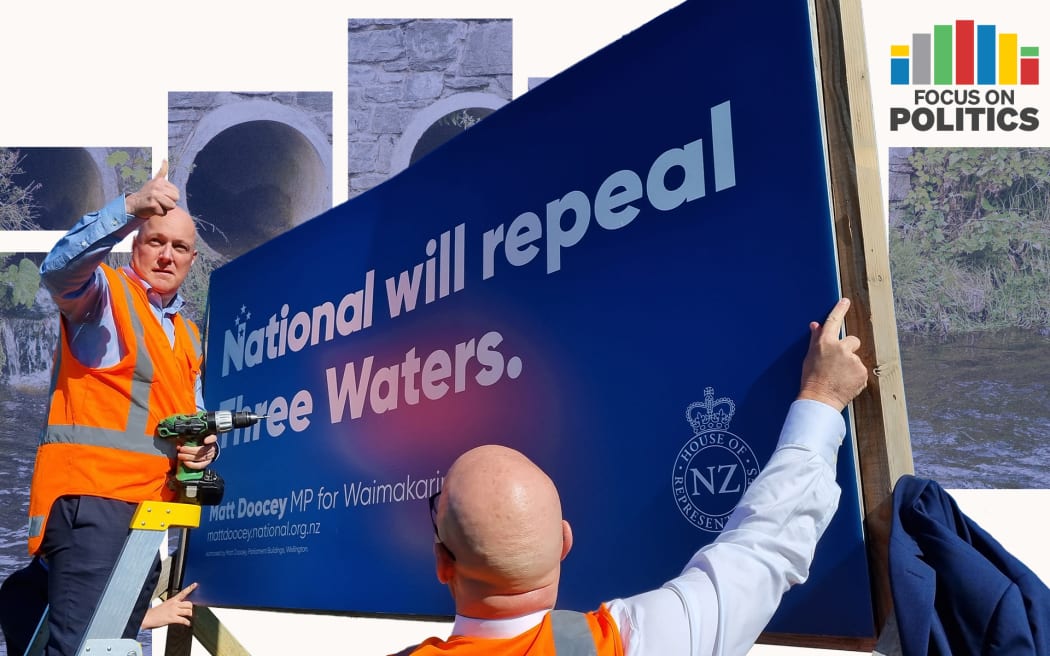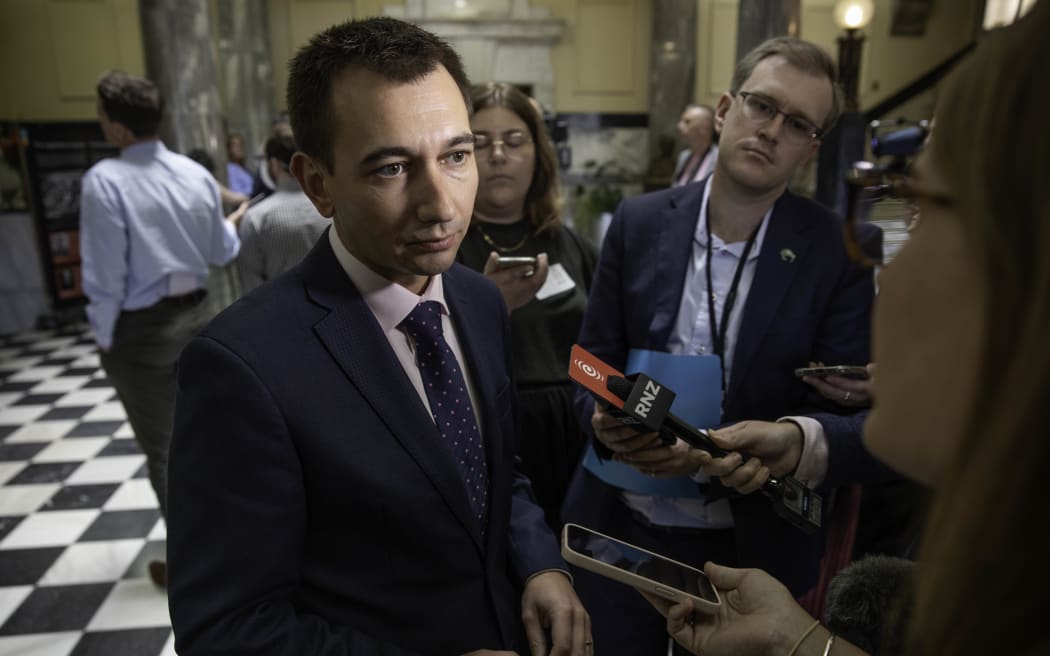
Photo: RNZ
"This is what councils across the country said they wanted" - Simeon Brown
The coalition has ticked off another objective - repealing the troubled Three Waters programme - but in doing so may have just delayed the bigger problem for another day.
Three Waters has a turbulent history, going back to mid-2017 when the then-National government launched a review of the Havelock North water crisis.
After the election, the new Labour-led coalition began circulating its proposed response: taking control of water away from councils and giving it instead to four separate mega-entities. The idea was the new entities would be large enough and far enough removed from the councils' debts that they could borrow more and at a cheaper rate than the councils could do alone.
But by the time the details were fully unveiled in late-2021, a rump of opposition had built - with accusations of asset theft and concerns about the co-governance model requiring iwi involvement. It set the stage for a prolonged messy debate driven by furious councils.
The depth of feeling was such that Labour pivoted in March last year: rebranding to "Affordable Water Reform". The Minister in charge - Nanaia Mahuta - was replaced by Kieran McAnulty, the timeline was pushed back, and the four entities became 10, but the changes failed to end the furore.
Labour's opponents doubled down: pledging to repeal and replace, and - now in government - those parties achieved step one of that promise, using urgency to push through legislation consigning the Three Waters programme to the scrap heap.
Read more:
- Minister points to 'backstops' if councils refuse Three Waters amalgamations
- Councils 'don't have the capacity' to pay for water upgrades - Hipkins
- Parliament repeals Three Waters programme under urgency
- Three Waters repeal: 'It's going to be councils and mayors that cop it'
- Government sets up advisory group ahead of Three Waters repeal
The coalition's new plan - championed by new Local Government Minister Simeon Brown - still has a lot of detail to be worked out, prompting the government to gather a technical advisory group.
One key difference is clear: councils retain control and responsibility for their water assets - as many had demanded of Labour. Brown is unequivocal: it will be up to councils how they meet the new drinking water and financial sustainability standards, with no underwriting of debt.

Local Government Minister Simeon Brown Photo: RNZ / Angus Dreaver
They could form regional groupings similar to Labour's vision - but as a voluntary, rather than mandatory, measure. This could, however, leave some councils - smaller, rural or debt-ridden - to fend for themselves, their neighbours unwilling to take on the extra risk and cost. Brown has pointed to new "regulatory backstop" powers which could allow the government to step in if need be.
McAnulty believes councils simply cannot deal with the scale of the problem alone, warning any entities they form are unlikely to be large enough - or separated enough from council control - to get those better deals for borrowing. Labour is adamant it will mean massive hikes for ratepayers across the country.
Some mayors like Manawatū's Helen Worboys are confident they will get by, but others fear being left out in the cold - like Buller District's Jamie Cleine, who suspects the West Coast will need to combine with Canterbury.
"Under the current Local Government Act settings, it's pretty hard for a mayor to do anything that's a negative impact on his own ratepayers, so it's hard to imagine why they would voluntarily want to do that," he said.
Morning Report host Corin Dann pushed the minister on this point, but Brown said those were "conversations that we expect councils to be having as they put forward their plans for financial sustainability ... those conversations will be led by councils in the first instance". After repeated questioning, Brown said it was only "hypothetical at this stage" and pointed again to those regulatory backstops.
It's possible that the coalition's plan will ultimately deliver something similar to Labour's vision, just on a much slower track: councils will either form their own mega-entities or they'll eventually be forced to.
The argument then becomes one of efficiency versus public buy-in - and Labour has found out the hard way where a lack of public buy-in gets you.
In this week's Focus on Politics, Deputy Political Editor Craig McCulloch tests the temperature as the coalition moves to repeal and replace Labour's water reforms.
Listen free to Focus on Politics on Apple Podcasts, on Spotify, on iHeart Radio or wherever you get your podcasts.


